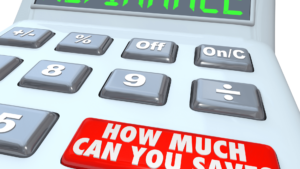Back in March, the federal government cut interest rates in an attempt to stimulate the economy during the COVID-19 pandemic. In addition, many lenders are offering programs that will allow homeowners who have lost income to pause mortgage payments without hurting their credit. There are many ways that these tactics are impacting the current real estate market. Here’s what you need to know.

Coronavirus and Mortgages
The coronavirus impact on mortgage rates
Last month, the Federal Reserve cut interest rates and also announced that it would buy more mortgage-backed securities. These were both in an effort to keep the market functioning smoothly. Buying mortgage-backed securities means that lenders will have money for buyers to borrow. Between mid-March and mid-April, fixed mortgage rates fell by almost half a percentage point. For homebuyers, this can mean significant savings, especially if you lock-in the interest rate.
The coronavirus impact on refinances
Current homeowners may be even more enticed than buyers by the drop in mortgage rates. Many are deciding if now is a good time to refinance their loans. Keep in mind that even a small reduction of your rate can net you significant savings over time, even when you consider the closing costs. This is especially true if you plan to stay in your home long term. Be aware that this is a busy time for lenders who are processing refinance applications, and as a result it may take longer to finalize your new loan. And just like when you got your first mortgage, you should shop around so that you get the best possible rates and terms.
The coronavirus and home appraisals
One crucial step in the closing process for a home loan is an appraisal. The lender typically sends a professional appraiser to the property to determine its fair market value. Of course, with strict social distancing guidelines in place around the country, it is difficult to perform an appraisal in the traditional way. For this reason, new rules have been implemented to help keep the process moving forward without putting anyone in unnecessary danger. Some lenders have approved drive-by appraisals, where the appraiser drives by the home to evaluate it. Other lenders have also authorized the use of desktop appraisals where the appraiser uses existing data to determine the value of the home.
The coronavirus and mortgage relief
If you’re one of the millions of Americans who is suddenly out of work, then you may qualify to get mortgage relief. The recently enacted CARES Act directs lenders that hold federally backed mortgages to offer payment suspension for as long as 12 months. During this time, homeowners will not be charged late fees. They will also not be reported to any credit bureaus for late payments. In addition, foreclosures and evictions will be suspended for at least 60 days. Federally backed home loans are those that are insured by the FHA, the VA, and the USDA, among others. If the federal government does not back your loan, then contact your lender or loan service provider to determine if there are options that may be available to you.




